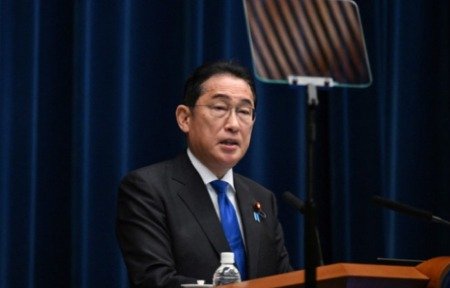Despite cancelling his trip to Kazakhstan for what would have been a 4-day summit with leaders from five Central Asian countries after announcing his resignation, outgoing Japanese Prime Minister Fumio Kishida reaffirmed his country’s commitment to increase its investments in the region.
“We will make timely arrangements for my visits to the countries I was scheduled to visit. There is absolutely no change in my intention to vigorously promote (those) ties,” Kishida told reporters earlier this month.
Kazakhstan, the most developed economy in Central Asia, is a key focus for Japan. It stands out as a significant recipient of Japanese investment with around 100 Japanese companies operating there and over 60 joint investment projects.

Kazakh Deputy Minister of Foreign Affairs Nazira Nurbayeva, during a roundtable discussion in Tokyo earlier this year, said, “Key sectors such as mining, the metallurgical complex, chemical industry, agro-industrial complex, and mechanical engineering are ripe for Japanese expansion.”
Around the same time, Kazakh Minister of Trade and Integration Arman Shakkalieyv met with a Japanese delegation led by State Minister of Economy, Trade and Industry Ryosuke Kozuki. The two sides discussed ways to enhance trade and economic cooperation.
But why is Kazakhstan such an attractive investment destination for Japan?
Rich repository of oil and gas deposits
Kazakhstan’s abundant hydrocarbon and mineral reserves form the backbone of its economy. The country’s wealth in petroleum and natural gas continues to attract Japanese interest, positioning it as a reliable and strategically important supplier.
Atameken Chamber Chairman Raimbek Batalov recently underscored the investment potential in “priority industrial sectors such as ecology, mining, oil, gas, and petrochemical industries,” noting that these sectors not only promise substantial returns but also benefit from “stability and predictability of tax legislation, thanks to the region’s simplified tax regime and favorable business climate.”
Hub for business, finance, and education
Kazakhstan is also positioning itself as an “international center for business, finance, and education,” according to Michael Rossi, a professor at Rutgers University in the United States and Webster University Tashkent.
The country’s openness to foreign engagement and its strategic location make it an ideal destination for transportation and logistics. Japan’s involvement in developing the region’s infrastructure could lead to new sectors with significant investment potential, offering Japanese companies deeper integration into Kazakhstan’s economy.
Bridging Asia and Europe as a trade route
Despite the summit being postponed, Kishida told reporters that Japan is still keen on providing economic aid package for Central Asia, including the establishment of a new trade route through the Caspian Sea. This route aims to connect the region with Europe and serve as a stable export link for Japan
